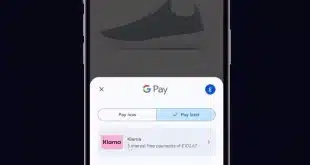A mobile-payments system from Google Inc. may strengthen the search giant’s hand in marketing but will pose little threat to established payments networks, according to experts contacted by Digital Transactions News. The Google venture, more news of which emerged this week, has surprised some observers because it includes MasterCard Inc. and Citigroup Inc., players that might be thought opposed to working with a non-bank technology powerhouse.
But Google, which is planning to introduce mobile payments some time this year that will be based on near-field communication technology (NFC), is chiefly interested in using mobile to extend its search and advertising capabilities into the physical world, experts say. “Google is not trying to become a MasterCard or a bank,” says Einar Rosenberg, chief technology officer for Narian Technologies, a developer of NFC applications and other software for mobile payments. “This is a huge opportunity for Google to do better marketing [through] enhanced payment services. There are so many opportunities Google sees, not just payments.”
Another source contacted by Digital Transactions News argues along similar lines. Google is likely to follow its online model, charging physical merchants for foot traffic it can drive into its stores through search results and offers it delivers to consumers’ mobile phones, this source says. Once the customer is in the store, the payment transaction will allow Google to collect an advertising fee from the merchant without having to bill the merchant and without having to share in interchange, the source says.
Contacted by Digital Transactions News, Google and Citi refused to comment on the NFC project. MasterCard did not respond to a request for comment. A spokesman for VeriFone Systems Inc., which is reportedly providing NFC readers for the project, also refused to comment when contacted.
Though the precise timing for the venture isn’t known, it is “in its early stages,” the Wall Street Journal reported on Monday. But it has apparently started to call on merchants. Wal-Mart Stores Inc. told the Journal it had been briefed by Google on the venture, but called the talks “very preliminary discussions” and said it had not been pitched to accept it, the newspaper reported. The first cities selected by the project are San Francisco and New York, according to a report published March 15 by Bloomberg News.
The project will reportedly rely on the Nexus S smart phone that Google introduced late last year. The device includes an NFC chip and runs on Google’s Android operating system. More NFC-equipped Android phones could be added as they emerge
Google’s venture into NFC-based payments could light a spark with similar projects from banks and some of the wireless carriers, Narian’s Rosenberg says. Major banks like Bank of America Corp. have announced NFC payments trials. And last year AT&T Inc., Verizon Communications, and T-Mobile USA formed a joint venture called Isis to offer mobile payments via NFC. Though said to be an effort to bypass banks, Isis also included Barclaycard USA and Discover Financial Network. Little has been heard in recent months from any of these projects, however.
Google, by contrast, is likely to lend heavy promotion to its venture, Rosenberg says. “Google will try to promote the heck out of this,” he notes. “This will put a fire under Isis, which has been moving slowly.”
Indeed, the participation by Citi, which reportedly will enable its credit and debit card accounts for the Google mobile wallet, and the MasterCard network isn’t hard to fathom, given the alternatives in NFC and the eagerness in some banks to adopt the technology, says Todd Ablowitz, president of Centennial, Colo.-based Double Diamond Group LLC, which advises on electronic payments. “If you look at your choices right now, [they are] do your own [NFC] wallet, or go work with Isis, or go with Google, which appears to be saying the wallet is free and we’re going to push the heck out of this thing and we’re going to do compelling offers for consumers, [then Google’s venture] appears to be compelling,” he says.





